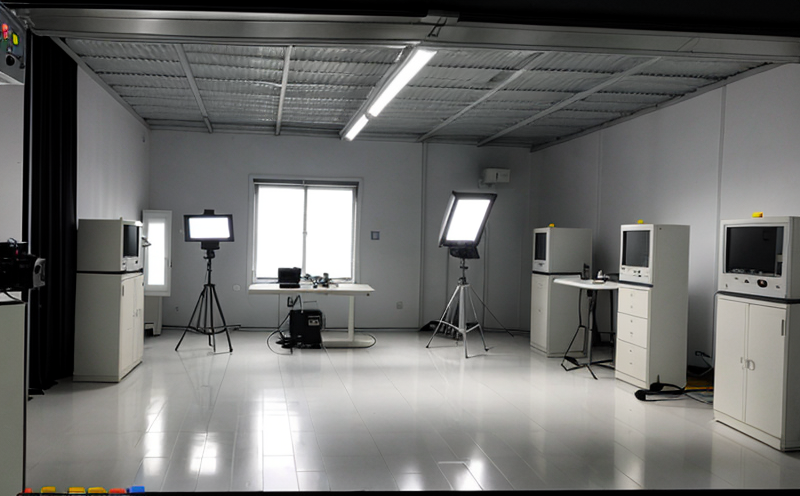CIE 135 Photometric Testing of Outdoor Sports Lighting
The CIE 135 photometric testing standard is a cornerstone in ensuring that outdoor sports lighting systems meet the stringent requirements for visibility, safety, and performance. This test evaluates how well light sources perform under specific environmental conditions relevant to outdoor sports settings.
Outdoor sports lighting must provide sufficient illumination while minimizing glare and ensuring uniformity over the playing field or track. CIE 135 addresses these critical aspects by measuring photometric data such as luminance, illuminance, color rendering index (CRI), and other metrics that impact visibility for athletes.
The standard is particularly important in regulated environments where compliance with international guidelines ensures safety and performance standards. For instance, it plays a pivotal role in the design and certification of sports facilities worldwide, including those used by professional leagues and international tournaments.
Compliance with CIE 135 not only enhances user experience but also supports environmental sustainability goals by optimizing energy consumption. The test focuses on how well light sources perform under various conditions, such as varying weather patterns, time of day, and the presence of ambient light.
In real-world applications, this testing ensures that lighting systems in outdoor sports facilities can withstand harsh conditions while maintaining optimal performance. This is crucial for ensuring player safety and fair competition across different locations and climates.
The process involves detailed preparation of the specimen, which includes installing the light source under controlled environmental conditions to simulate real-world usage. The apparatus used during testing includes photometers capable of measuring various parameters accurately.
Understanding the nuances of CIE 135 is essential for quality managers and compliance officers responsible for ensuring product integrity. It provides a comprehensive framework for evaluating outdoor sports lighting, contributing significantly to the design and certification processes.
The standard's emphasis on visibility and safety underscores its importance in enhancing performance across various sectors, from professional sports to recreational facilities. By adhering to CIE 135, manufacturers can ensure their products meet the highest standards of quality and reliability.
This testing is not just about compliance; it's a commitment to excellence that sets benchmarks for industry leaders. Whether you're developing new lighting systems or ensuring existing ones meet regulatory requirements, CIE 135 photometric testing offers invaluable insights into performance under real-world conditions.
Applied Standards
The primary standard for this service is the International Commission on Illumination (CIE) publication titled 'Photometric Testing of Outdoor Sports Lighting' (CIE 135). This document provides comprehensive guidelines and methods for testing outdoor sports lighting systems to ensure they meet specific performance criteria.
CIE 135 covers a range of parameters essential for evaluating the effectiveness of outdoor sports lighting. These include luminance, color rendering index (CRI), uniformity, glare control, and visual comfort level. The standard also addresses how these factors are measured under various environmental conditions relevant to different types of playing surfaces.
For compliance officers and R&D engineers, understanding the intricacies of CIE 135 is crucial. It serves as a foundation for developing products that not only meet regulatory requirements but also enhance user experience by providing optimal lighting conditions during play.
The standard emphasizes the importance of testing under realistic conditions to ensure accurate results. This approach ensures that any discrepancies in performance are identified early, allowing manufacturers and designers to make necessary adjustments before product release.
Scope and Methodology
| Parameter | Description | Method |
|---|---|---|
| Luminance | Total amount of light emitted by the source per unit area. | Measured using a photometer calibrated according to ISO 21683:2014. |
| Illuminance | The luminous flux received from all directions on a surface per unit area. | Measured at specified points across the playing field using an integrating sphere photometer. |
| Color Rendering Index (CRI) | A measure of how well light sources render colors in comparison to a reference source. | Determined by comparing the color appearance under test conditions with those under standard illuminant conditions (ISO 13457). |
| Glare | The effect of excessive brightness that causes discomfort or impairment to visual functions. | Evaluated using the Glare Sensitivity Index (GSI) as outlined in CIE 135:2018. |
| Uniformity | The degree to which light distribution is consistent across the playing field. | Assessed by measuring illuminance at multiple points and calculating standard deviation. |
Competitive Advantage and Market Impact
Compliance with CIE 135 photometric testing offers significant competitive advantages in the outdoor sports lighting market. By adhering to this standard, manufacturers can demonstrate their commitment to quality and reliability, which is crucial for gaining trust from clients and regulatory bodies.
This compliance ensures that products meet the highest standards of performance, thereby enhancing user experience and safety. Such adherence also opens doors to participate in international tournaments and professional leagues where stringent lighting requirements are enforced.
Moreover, CIE 135 photometric testing supports environmental sustainability goals by optimizing energy consumption. Efficient lighting systems reduce operational costs while contributing positively to the environment. This aligns with growing global initiatives towards sustainable development, making compliant products more appealing to environmentally conscious consumers and organizations.
The standard's emphasis on real-world performance conditions ensures that tested products perform consistently across various environments, giving manufacturers a competitive edge in diverse markets.





